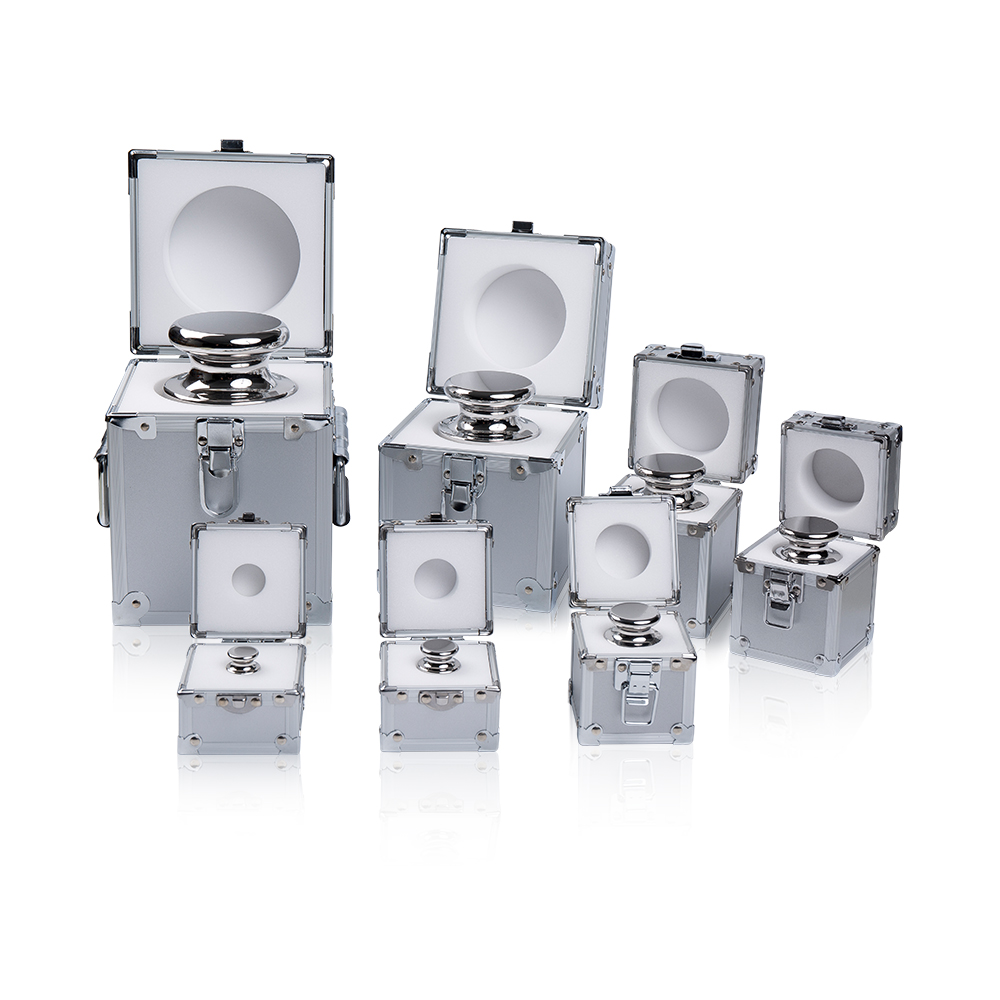The specific grade or composition of stainless steel used in test weights typically depends on the required accuracy, durability, and environmental conditions of their intended use. Here are some common grades and considerations:
Stainless Steel Grades:
Grade 304 (A2): This is one of the most widely used stainless steel grades for test weights. It offers good corrosion resistance, durability, and affordability. Grade 304 is suitable for general-purpose applications where exposure to corrosive environments is moderate.
Grade 316 (A4): Known for its superior corrosion resistance, Grade 316 stainless steel is often used in test weights intended for harsher environments, such as marine or chemical industry applications. It contains molybdenum, which enhances its resistance to chloride corrosion.
Grade 410: This martensitic stainless steel grade is hardened and tempered for improved strength and wear resistance. It is commonly used in higher precision test weights where hardness and resistance to abrasion are critical.
Grade 420: Another martensitic stainless steel grade, Grade 420 offers good hardness and corrosion resistance. It is often used in precision test weights requiring higher wear resistance and dimensional stability.
Composition Considerations:
Alloying Elements: Stainless steel test weights may contain alloying elements such as chromium, nickel, molybdenum, and sometimes titanium or niobium. These elements contribute to corrosion resistance, hardness, and other mechanical properties.

Surface Finish: The surface finish of stainless steel test weights is crucial for preventing contamination and ensuring consistent measurement accuracy. Finishes such as electropolishing or passivation help maintain surface integrity and cleanliness.
Environmental and Application Factors:
Corrosion Resistance: The grade of stainless steel chosen depends on the level of exposure to corrosive environments. For indoor applications with controlled humidity and temperature, Grade 304 may suffice. Outdoor or marine environments may require Grade 316 for superior corrosion resistance.
Precision and Calibration: Higher precision test weights often require grades like 410 or 420, which offer better dimensional stability and resistance to deformation over time.
Certification and Standards:
Stainless steel test weights must meet international standards such as ASTM (American Society for Testing and Materials) or OIML (International Organization of Legal Metrology). These standards specify requirements for material composition, manufacturing processes, surface finish, and accuracy tolerances.
The choice of stainless steel grade for test weights is based on a combination of factors including environmental conditions, required accuracy, durability, and regulatory compliance. Manufacturers select grades that balance these considerations to ensure reliable and accurate measurement standards in various industrial, laboratory, and commercial applications.

 English
English















